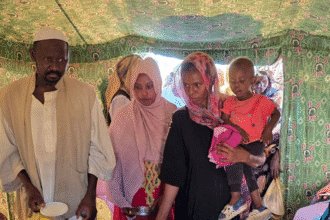Health Ministry Confirms Case in Marrakech as WHO Calls for Coordinated International Response
What Is the Significance of Morocco's First Mpox Case?
The health ministry of Morocco has verified that a man from Marrakech first showed pox symptoms, formerly known as monkeypox. As the World Health Organisation (WHO) declared a public health emergency last month following the global epidemic, this is a significant step as it is the first recorded case in the nation. The situation in Morocco fits a more substantial wave of illnesses sweeping Africa and the globe.
The health ministry said the patient is in stable condition and undergoing treatment. Still, the particular form of the virus invading the person has not been revealed yet. Previously linking the present epidemic to a fast-spreading variety originating from Central Africa, the WHO has caused worry not just on the continent but also beyond.
How Are Moroccan Authorities Monitoring Contacts?
Moroccan officials have started a thorough search to find every person who could have come into contact with the sick guy in reaction to the verified case. The health ministry assures the public that none of the found people have displayed signs of the virus thus far; therefore, close observation of these connections is continuous. As health officials take all required measures, the matter is under ongoing observation.
The health ministry underlined in a statement on Thursday: “We are closely monitoring everyone who has been in contact with the patient, and at this point, none are showing signs of infection.” The authorities are acting proactively to stop more viral transmission and restrict its spread.
Close personal contact with an infected individual is the leading known way to transmit pox. Still, it can also be passed on by tainted things such as towels, beds, or clothes. Since these surfaces might act as infection vectors, health officials encourage people to be alert.
What Are the Potential Health Risks of Mpox?
Although chickenpox infections usually go away in 14 to 21 days, the virus can cause significant health problems, particularly for susceptible individuals such as young children, pregnant people, and those with compromised immune systems. While most instances pass without causing long-term damage, severe infections might cause more hazardous problems.
In more severe cases, the WHO has issued cautions that lesions might spread across the body, including sensitive parts like the mouth, eyes, and genitalia. The WHO said, “Severe infections can lead to lesions that spread throughout the body, particularly affecting the mouth, eyes, and genitalia.” These infections require solid medical attention to control symptoms, manage pain, and prevent further health issues.
Medical experts concentrate on treating pox symptom management, pain management of lesions, and preventing subsequent infections that can aggravate the illness. Though they are seen as a primary weapon in stopping the spread, many impacted areas—mainly rural areas—do not currently have enough vaccinations accessible.
How Is Mpox Impacting Africa?
With about 20,000 cases reported across 14 countries in 2024 alone, Africa has been the epicenter of the pox epidemic. The reported over 500 deaths highlight the gravity of the situation. With almost 5,000 cases recorded this year, the Democratic Republic of Congo (DR Congo) has suffered the most. Because of insufficient healthcare facilities and trouble getting vaccinations to the most impacted areas, the outbreak in DR Congo is challenging to stop.
Although vaccines have been dispatched to DR Congo, logistical difficulties have delayed their arrival in the eastern regions of the nation where the epidemic is most severe. Before immunizations reach the most affected areas, many weeks might pass. Health authorities are still controlling the epidemic with few resources at hand.
What Is the WHO's Response to the Mpox Outbreak?
The WHO announced on August 14, 2024, that the epidemic was a public health emergency in response to worsening circumstances. It emphasized the importance of an international response to limit the spread of the virus and preserve lives. WHO Director-General Dr. Tedros Adhanom Ghebreyesus urged worldwide collaboration to handle the situation. “It is clear that a coordinated international response is needed to stop these outbreaks and save lives,” Dr. Tedros remarked in a most recent statement.
The proclamation captures the degree of the present epidemic, which is expanding throughout African countries and into other areas. Global health experts are working together to implement preventative actions, guarantee vaccination delivery, and assist impacted areas.
Authorities are on great vigilance to stop additional spread after the first case has been verified in Morocco. The worldwide health community is still concentrated on controlling the epidemic, offering treatment, and finally ending the spread of this lethal virus.








